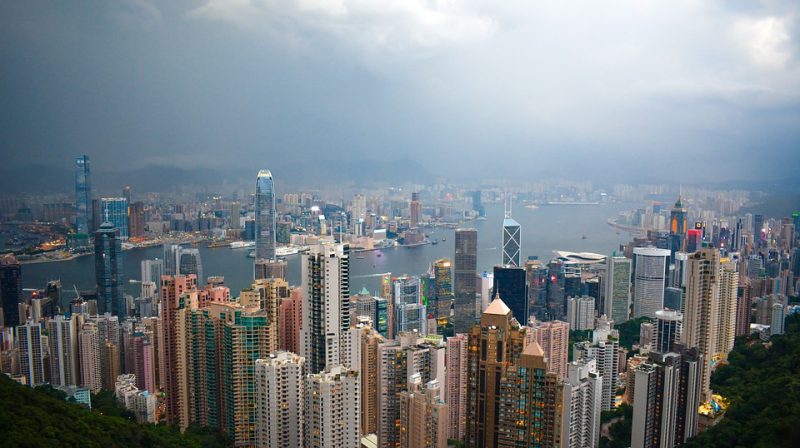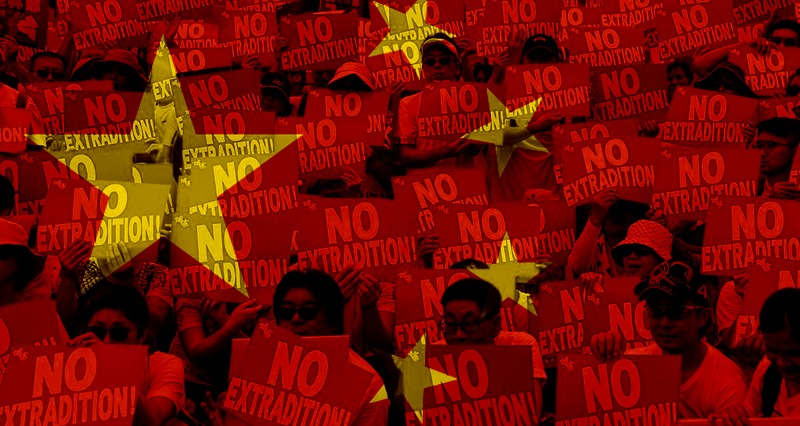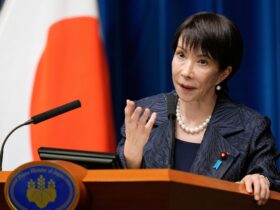In Hong Kong, the riots were temporarily suspended, during which dozens of police and demonstrators suffered. After mass protests in June, the government suspended changes in the law on extradition to mainland China. Also Hong Kong leader says sorry as protesters insist she quits.
However, despite the concessions of the authorities, on June 16, protesters are again on the streets demanding the complete abolition of the initiative. The next discussion on the bill takes place Wednesday.
Details
The head of Hong Kong, Carrie Lam, promised to take the population’s opinions into consideration following the riots.
According to the organizers, about a million people went out to protest, police say the numbers were closer to 240,000.
The first large march took place on June 9, and the second on June 12. Hong Kong residents blocked the streets outside the government building where the law was being considered.
https://www.youtube.com/watch?v=PCyrJTmUpNQ
The essence of the law on extradition
The demonstrations are directed against a law regarding the extradition of criminals to mainland China.
The government argued that the proposed amendments would help to eliminate holes in legislation so that Hong Kong would cease to be a haven for criminals from neighboring countries.
The agreement involves China, Taiwan and Macao. As an example, there was a big criminal case, when a 19-year-old boy from Hong Kong killed his 20-year-old pregnant girlfriend while on holiday in Taiwan, and the Hong Kong authorities could not hand him over to the court of investigation of the country where the crime occurred.
Opponents of the new amendments argue that the initiative is needed for “putting pressure on political opponents” of China living in Hong Kong.
In fact, the law is very necessary, especially since Hong Kong, although in a special position, is part of the PRC.

Pixabay
One country? Two systems…
Hong Kong was for a long time a British territory, and these demonstrations have become the largest since the jurisdiction reunited with the PRC. Hong Kong has economic, judicial and legislative autonomy. Beijing is in charge of defense and international affairs.
There is a principle between China and Hong Kong – “one country – two systems”. The basis of this system is China’s “one country – two systems” policy. The first part of this formula includes technological innovations but retains the severity of management and its own identity, the second is completely globalist, allowing the region to become a haven for technocrats, cosmopolitans, billionaires and outspoken gangsters. Given the direct Western influence on the economy and the organizations pushing the protests in Hong Kong, it is impossible to see the protests as spontaneous or internally motivated or ‘democratic.’
External intervention?
China has pointed out the external forces influencing the situation in Hong Kong.
As Chinese Vice Foreign Minister Le Yucheng said, Beijing `urges the US to treat the Hong Kong government objectively and fairly and respect its normal legislative process,`
It is noteworthy that on the eve of the protests, British ex-foreign minister Malcolm Rifkind called the government initiative `absurd`.
Former British colonial governor Chris Patten (Chris Patten) released a special video message saying the initiative is nonsense.
According to him, the Hong Kong government’s claim that the controversial extradition bill will close a loophole was “absolute nonsense.”
The US has said that they don’t plan to change their standing 1992 agreement with Hong Kong (with special privileges) unless there is a bigger escalation with China.
At the same time, US said they’re “gravely concerned” about the current situation
Washington warned that the current situation risks affecting Hong Kong’s special status. This initiative will “negatively impact the territory’s longstanding protections of human rights, fundamental freedoms and democratic values,” the administration added
According to Senator Marco Rubio, the world is “inspired by and support the people of #HongKong as they peacefully protest.”
Immediately Human Rights Watch jumped on their hobby horse of attacking China for regularly “violating the human rights” of the Uighur population as though it were directly connected.
The west is exploiting the situation to pressure China, shifting all of the problems of Hong Kong onto Beijing, as the policies of Chinese leader Xi Jinping are being demonized like never before. Given that China is the main geopolitical and economic rival of the United States, their strategy is obvious, despite that many are seemingly approaching the situation in isolation.
At the same time, despite the formal affiliation of Hong Kong and China, the worst epithet for local politicians is “pro-Beijing”(this is actively replicated in the media, including the fact that Hong Kong residents are “not Chinese, but Hongkongers”).
This is the intentional separatism of a single nation in order to break up a major power, a strategy being employed around the world.
Thus, the battle for Hong Kong is a battle not only for economic influence but also a battle of ideology.

















Leave a Reply